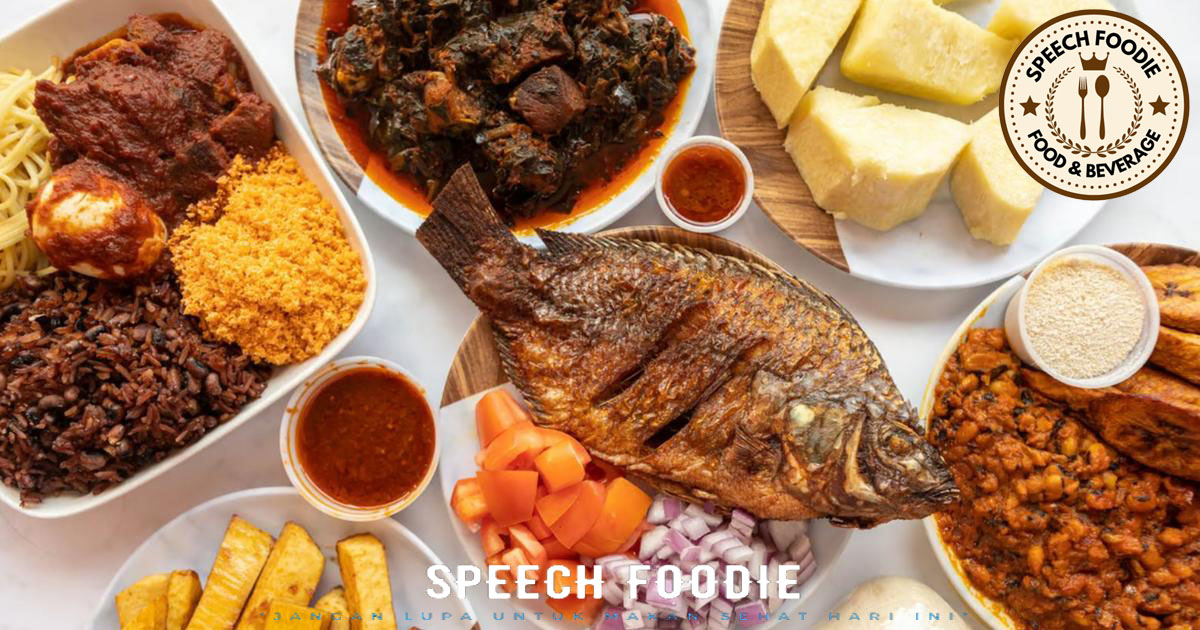
15, Nov 2024
Ghana Food
Exploring the Rich Flavors and Culture of Ghanaian Food
Hello and welcome to an exciting culinary journey! Today, we delve into the vibrant and diverse world of Ghanaian cuisine—a fascinating fusion of flavors, traditions, and history. Ghanaian food, deeply rooted in the country’s cultural and geographical diversity, is a reflection of the warmth and hospitality of its people. Whether you’re a seasoned foodie or a curious traveler, Ghanaian dishes promise an unforgettable gastronomic experience.
Known for its use of bold spices, fresh ingredients, and unique cooking methods, Ghanaian food has carved a niche in the global culinary scene. From the smoky aroma of jollof rice to the savory delight of fufu with light soup, every dish tells a story of tradition and community. This article explores the rich tapestry of Ghanaian cuisine, highlighting its history, key dishes, ingredients, and cultural significance.
Join us as we uncover the secrets behind Ghana’s most beloved recipes, the benefits and challenges of its culinary practices, and the essential role food plays in the nation’s identity. Whether you’re planning a trip to Ghana or simply looking to expand your palate, this guide will equip you with the knowledge to appreciate Ghanaian food at its best.
Introduction to Ghanaian Food
Ghanaian food is a melting pot of flavors and influences, shaped by the country’s diverse ethnic groups and its position as a trade hub in West Africa. Each region in Ghana boasts its unique culinary specialties, from the savory soups of the northern regions to the seafood-rich dishes of the coastal areas.
The foundation of Ghanaian cuisine lies in its staple ingredients: maize, cassava, plantains, yams, and millet. These are complemented by a wide variety of spices, herbs, and condiments, such as ginger, garlic, onions, and pepper. The result is a cuisine that is both comforting and exhilarating, with a perfect balance of heat, sweetness, and tanginess.
Traditionally, meals in Ghana are communal, reflecting the country’s emphasis on family and community. Dining is often accompanied by stories, music, and a sense of togetherness that elevates the food experience beyond mere sustenance. This cultural approach to food highlights its importance as a means of connection and celebration.
Over the years, Ghanaian food has gained international recognition, with iconic dishes like jollof rice becoming staples at African restaurants worldwide. Yet, there is so much more to discover beyond these well-known dishes, as Ghanaian cuisine continues to evolve while staying true to its roots.
Key Ingredients and Iconic Dishes
Ghanaian cuisine is defined by its reliance on fresh, locally sourced ingredients. These include staples such as maize, cassava, plantains, and yams, as well as a rich variety of seafood, poultry, and meats. Vegetables like okra, tomatoes, and leafy greens are commonly used, often prepared in hearty stews and soups.
Among the most iconic dishes in Ghana are:
- Jollof Rice: A one-pot dish of rice cooked with tomatoes, onions, and spices, often served with fried plantains and chicken.
- Fufu: A starchy side dish made from cassava, yams, or plantains, typically paired with soups like peanut or light soup.
- Kenkey: Fermented maize dough wrapped in banana leaves, served with fish and spicy pepper sauce.
- Waakye: A rice and beans dish, often accompanied by boiled eggs, fried plantains, and meat.
Advantages and Disadvantages of Ghanaian Food
Ghanaian food offers numerous advantages, including its rich flavors, reliance on natural ingredients, and nutritional value. However, it also presents some challenges, particularly for individuals unfamiliar with its bold spices or unique preparation methods.
Table of Ghanaian Food Information
| Dish | Main Ingredients | Region of Origin | Common Pairings |
|---|---|---|---|
| Jollof Rice | Rice, tomatoes, onions, spices | Nationwide | Fried plantains, chicken |
| Fufu | Cassava, yams, plantains | Akan regions | Light soup, peanut soup |
| Kenkey | Fermented maize dough | Coastal areas | Fish, pepper sauce |
| Waakye | Rice, beans | Nationwide | Eggs, meat, plantains |
Frequently Asked Questions (FAQ)
What makes Ghanaian food unique? Its bold flavors, use of local ingredients, and cultural significance make it unique.
Is Ghanaian food spicy? Many dishes are spicy, but the level of heat can often be adjusted to taste.
What is the national dish of Ghana? Jollof rice is often considered Ghana’s most iconic dish.
Are Ghanaian dishes healthy? Yes, they often use fresh ingredients and are nutritionally balanced, though preparation methods may affect calorie content.
Conclusion
Ghanaian food is more than just a culinary experience; it’s a journey into the heart of Ghana’s culture and heritage. Whether you’re exploring its street food scene or dining at a traditional restaurant, Ghanaian cuisine offers something for everyone.
Disclaimer
This article is for informational purposes only and aims to provide insights into Ghanaian cuisine. While we have made every effort to ensure the accuracy of this information, culinary preferences and practices vary widely, and we encourage readers to explore Ghanaian food firsthand to gain a deeper appreciation.
- 0
- By baratie-speechfoodiecom
